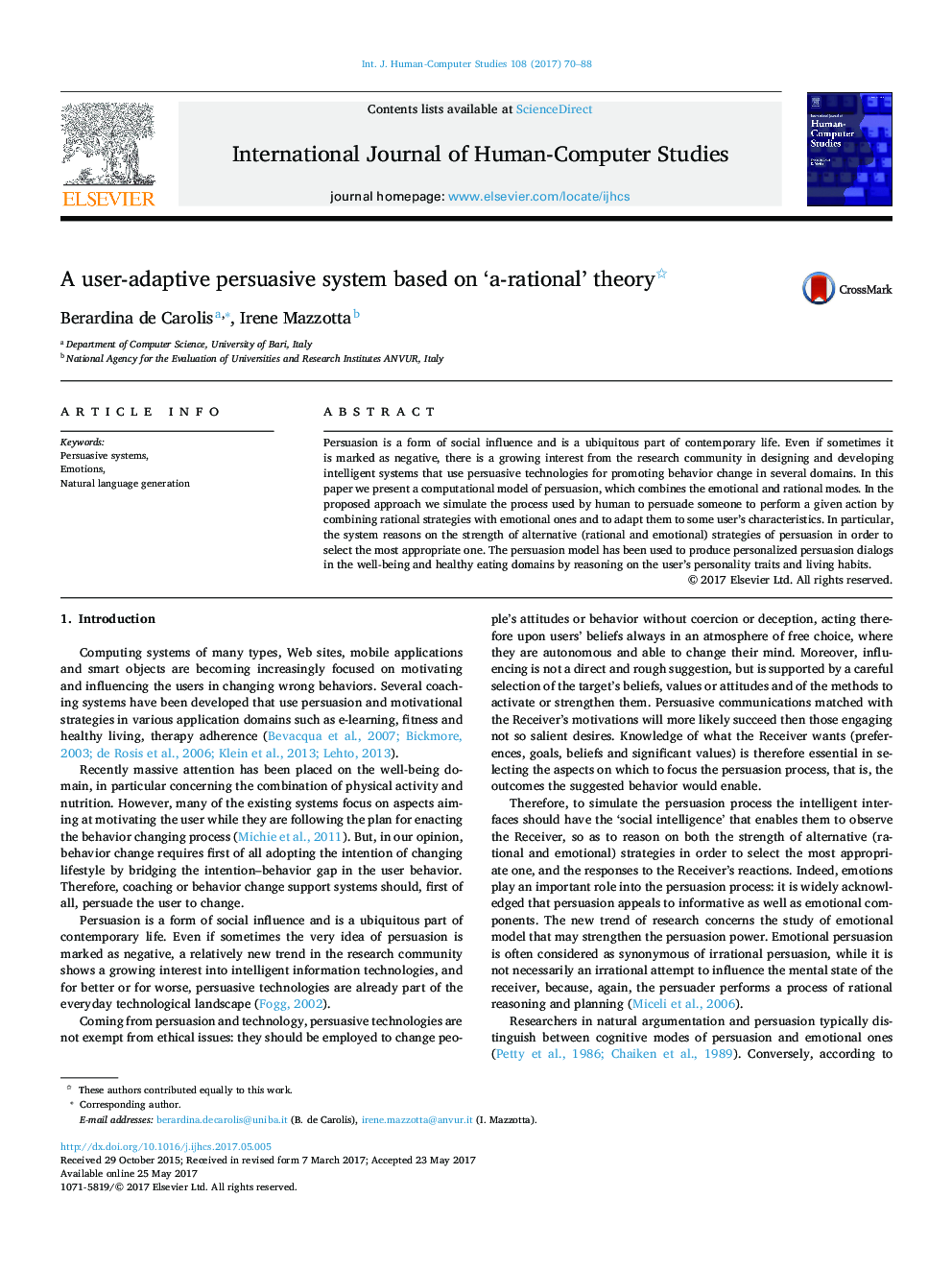| Article ID | Journal | Published Year | Pages | File Type |
|---|---|---|---|---|
| 4945757 | International Journal of Human-Computer Studies | 2017 | 19 Pages |
Abstract
Persuasion is a form of social influence and is a ubiquitous part of contemporary life. Even if sometimes it is marked as negative, there is a growing interest from the research community in designing and developing intelligent systems that use persuasive technologies for promoting behavior change in several domains. In this paper we present a computational model of persuasion, which combines the emotional and rational modes. In the proposed approach we simulate the process used by human to persuade someone to perform a given action by combining rational strategies with emotional ones and to adapt them to some user's characteristics. In particular, the system reasons on the strength of alternative (rational and emotional) strategies of persuasion in order to select the most appropriate one. The persuasion model has been used to produce personalized persuasion dialogs in the well-being and healthy eating domains by reasoning on the user's personality traits and living habits.
Keywords
Related Topics
Physical Sciences and Engineering
Computer Science
Artificial Intelligence
Authors
Berardina de Carolis, Irene Mazzotta,
